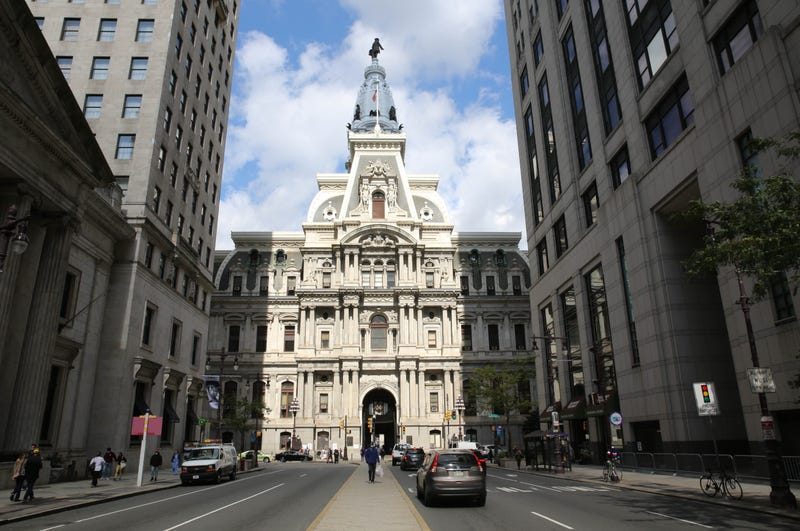
PHILADELPHIA (KYW Newsradio) — Philadelphia’s revived Tax Reform Commission held its first public hearing last week, where businessmen turned out in force, urging cuts to business taxes.
Jeff DuVuono told the commission that through his decades in local real estate, he’s seen suburban office space almost double while Philadelphia’s has stagnated. The reason, he said, is that the combination of the Business Income Receipts Tax (BIRT), the use and occupancy tax, and wage tax doubles the cost of office space in the city.
“If the city wants to continue to see a decline in its population, workforce, and economic vitality, leave the BIRT and wage tax unchanged, but if it wants to increase the number of people living, working, and growing within its borders, it must decrease or, better yet, eliminate the BIRT and wage tax,” he said.
DuVuono works for Brandywine Real Estate, whose owner has long championed replacing those taxes with an increase in property taxes. But Jon Sgro of Community Legal Services said that approach threatens low-income homeowners.
“Some believe property taxes are a more reliable source of revenue because real estate doesn’t move, but families and long-time homeowners do move when they can no longer afford their bills,” Sgro said.
Parking magnate Robert Zuritsky also argued for a decrease, if not the actual elimination of, the parking tax.
“Philadelphia’s parking industry has seen its taxes increase seven times,” Zuritsky said. “We are at a point where city taxes take between 40 and 70% of everything we collected from our customers before we pay workers, insurance or repairs to our facilities.”
Cutting business taxes without replacing the revenue, though, would mean huge cuts in services, as Stan Shapiro of Philadelphia Neighborhood Networks reminded the commission.
“Magical tax cuts, especially ones that mostly benefit big business, will not pay for those services,” Shapiro said.
Tom Ginsberg of Pew’s Philadelphia Research Center testified that city business taxes are actually pretty progressive, thanks to an exemption on the first $100,000 in receipts.
“The smaller a business in terms of gross receipts, the lower its tax burden,” Ginsberg said.
The 15-member commission has the summer to sort through all this. It’s expected to make recommendations in the fall.
